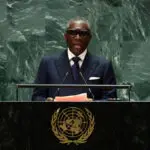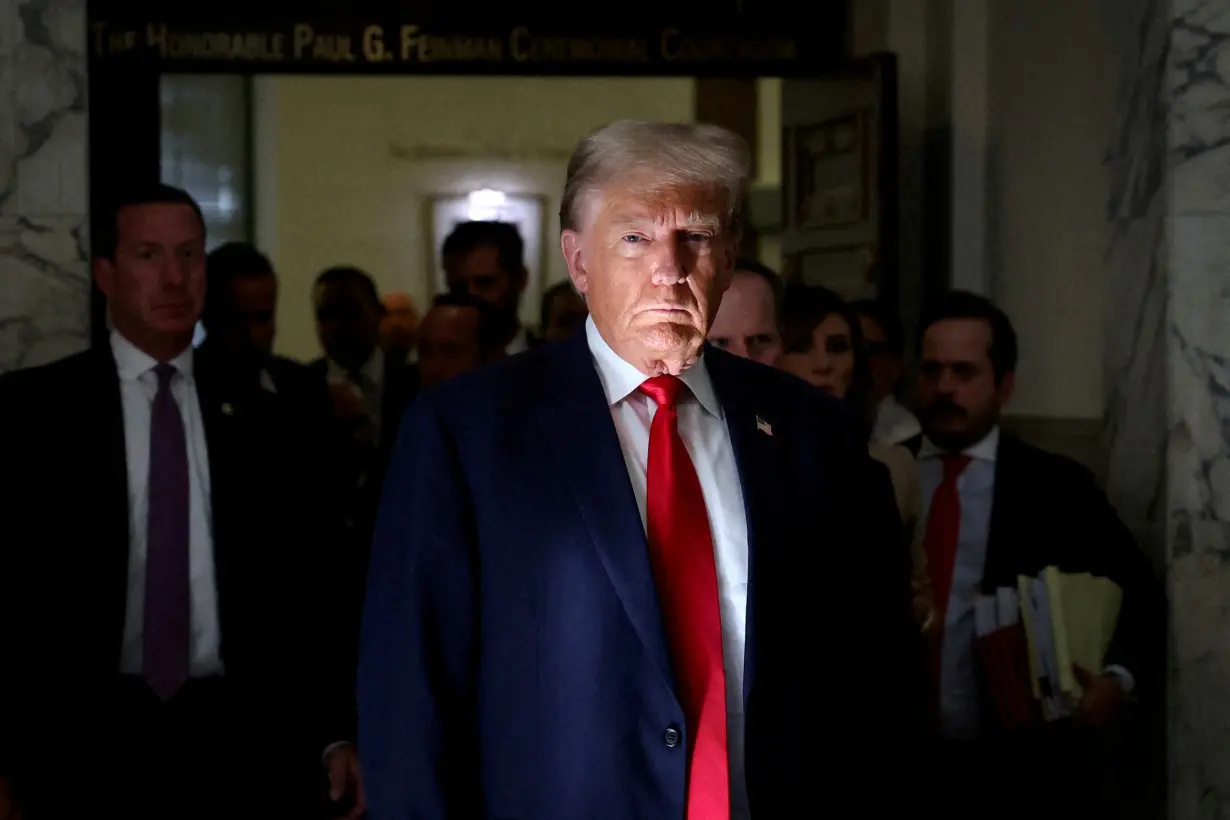WASHINGTON (Reuters) - Donald Trump stepped up his bid to have criminal charges against him over efforts to overturn his 2020 U.S. presidential election loss dropped, filing a flurry of motions overnight seeking again to have the federal case dismissed.
The three filings submitted late on Monday follow the Republican former president's attempt earlier this month seeking to dismiss the case citing presidential immunity, a claim U.S. prosecutors rebutted last week.
Trump, who is the frontrunner for the Republican presidential nomination, had sought to delay the federal trial in Washington, currently due to begin in March, until after the November 2024 election.
He was charged with four felony counts for attempting to interfere in the counting of votes and block the certification of Democrat Joe Biden's 2020 election victory in the case, one of four criminal prosecutions the former president faces.
In three filings overnight, his lawyers asked the U.S. District Court for the District of Columbia to dismiss the case, saying the prosecution was unconstitutional, failed to state how he violated any laws and was "selective and vindictive."
Representatives for the U.S. special counsel's office declined to comment but have until Nov. 6 to file their response with the court.
Trump's lawyers also asked the federal court in Washington to strike references about individuals related to the Jan. 6, 2021, attack at the U.S. Capitol, where Trump's supporters sought to prevent congressional certification of Biden's win in a deadly riot.
"Because the Government has not charged President Trump with responsibility for the actions at the Capitol on January 6, 2021, allegations related to these actions are not relevant and are prejudicial and inflammatory," they wrote.
In a separate filing last month, U.S. prosecutors noted that "the indictment does in fact clearly link the defendant and his actions to the events of January 6."
Earlier this month, Trump's lawyers sought to dismiss the case, arguing that he could not be prosecuted because ensuring “election integrity” was “at the heart of his official responsibilities as President.” U.S. prosecutors rejected that claim, saying there was no constitutional provision that protected a former president from criminal prosecution.
(Reporting by Susan Heavey; editing by Jonathan Oatis)

 Santa Cruz County ballot errors impact more than 1,100 voters
Santa Cruz County ballot errors impact more than 1,100 voters
 Strike at Boeing was part of a new era of labor activism long in decline at US work places
Strike at Boeing was part of a new era of labor activism long in decline at US work places
 Google defeats lawsuit over gift card fraud
Google defeats lawsuit over gift card fraud
 Delay in Chile mining permits a serious problem, says local head of Freeport
Delay in Chile mining permits a serious problem, says local head of Freeport
 Equatorial Guinea orders crackdown on sex in government offices after videos leaked
Equatorial Guinea orders crackdown on sex in government offices after videos leaked
 US needs to crack down on Chinese chipmaker SMIC, Republican lawmaker says
US needs to crack down on Chinese chipmaker SMIC, Republican lawmaker says
 Malaysia central bank set to manage market volatility, monitoring US election
Malaysia central bank set to manage market volatility, monitoring US election
 Book Review: 'The Name of This Band is R.E.M.' is a vivid journey through the rock band's history
Book Review: 'The Name of This Band is R.E.M.' is a vivid journey through the rock band's history
 Rare letter signed by Founding Fathers expected to fetch $1 million at auction
Rare letter signed by Founding Fathers expected to fetch $1 million at auction
 Jerry Jones says Dak Prescott likely out at least 4 games with IR move because of hamstring injury
Jerry Jones says Dak Prescott likely out at least 4 games with IR move because of hamstring injury

